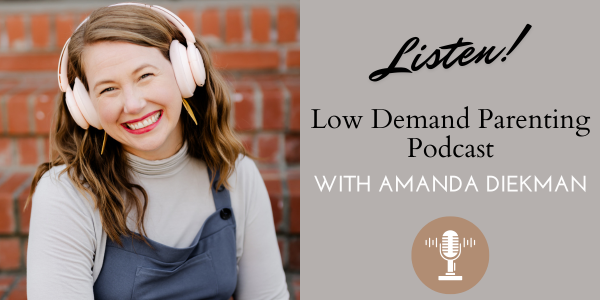A guide to imperfect healing
Apr 17, 2023
Originally published Apr. 17th, 2023. Written by Amanda Diekman.
It's easy to idealize healing.
I could heal if I had hours alone, in a beautiful place, walking gently through the woods, surrounded by skilled and loving professionals.
I had healing fantasies, when I realized I was deeply suffering from PTSD. I created a perfect picture of what I would need to heal. I had a fantasy home by the sea where I could sit and watch the waves, sipping hot tea.
The reality was very different.
We heal in our real lives, not in the fantasy.
In my fantasy, I was alone. In reality, I was living in the same home as 4 other struggling humans, one of whom was just leaving autistic burnout. In my fantasy, my healing was the central priority. In reality, life went on, with desperate needs, pressing conflicts, and dishes that needed unloading. In my fantasy, I looked out my window and saw the crashing waves. In reality, I saw my children screaming in the yard over who ran the fastest. In my fantasy, I got to separate from my struggling child. In reality, he could not be far from me, making it impossible for me to leave the house.
We pivot. We adapt. We heal anyway.
I rented an AirBnB for the first 10 days of my healing journey, with fantasies of leaving the house to go there everyday. In reality, my children called me dozens of times an hour, crying and begging me to come back home.
We hired a caregiver, and he rejected her, insisting that only I could refill his waters and pretzels, only I could drive him to therapy, and only I could play Roblox for hours with him.
I healed anyway.
Keep taking tiny steps toward healing, even when the reality feels exactly the same.
Don't wait for something to change. Keep taking tiny steps, even when the meltdowns go on, the constant neediness goes on, the dishes sit there needing to be washed.
I discovered that I could heal and change, right in the same place that harmed me in the first place. I didn't think it was true. People told me it wasn't true. And it was hard. But it is doable. I did it.
My child would come in during my EMDR sessions to ask for help typing in a password. I would pivot from tears streaming down my face to mom-mode, in a flash. We realized that this is the same thing I have to do when I field a meltdown and have to go straight from being screamed at to snuggling.
We created a plan, a series of steps to help me stay grounded as I pivot. We used these "interruptions" as spaces for additional healing. Because this is my life, and the healing happens step by step, right in my real life.
Take the half-measures.
I wanted to take a daily walk, but my son could not stand it when I was gone so long, so I walked laps up and down my block, where he could sit in the window and see me. I would stop in and check on him every few laps. I got bored and felt frustrated by the invisible leash that bound us together. I also felt exhilarated and free to be outside without him, exercising what little freedom I had.
I took my tiny walks, up and down my block, in sight of my child, and I still felt free.
Accept all the help.
The caregiver I hired was often banned from interactions with my son, so we got creative and found other ways she could help me. She would prep his food, so all I had to do was deliver it. She would clean up the toys, put away the dishes, prep the dinner. She spent time with the other boys who could tolerate her presence. She returned the library books and the rejected Amazon purchases. She picked up the groceries. I accepted all the forms of help that I could.
Heal alongside the kids.
I joined in my son's OT sessions, not because he couldn't stand to be apart from me (also true), but because I needed the experience of laughing and joining in his play with joyfulness and support. I let the therapist support our connection. I let my needs color the interactions.
Diving into a pillow pile AKA a snake's open mouth and emerging from the snake's belly coated in imaginary slime, I felt a real smile on my face. I was not dissociating. I was here. I was doing this.
The Takeaway
We idealize healing from our parenting traumas, creating fantasies and saying to ourselves, "I'll be able to heal when..." or "I would be able to heal if..." Every situation is different, and some realities are undoubtedly harder than others. So we start where we actually are, and we heal in our real life. We heal in our real relationships. Tiny steps from where you are count. Half-measures add up to real healing.
Quiz: "Why is everything so hard?"
................
Get your quiz results and discover one concrete next low-demand step toward ease and joy.
Low Demand in your Inbox
Juicy weekly emails include real-life parenting stories, low-demand ideas and tips, plus a collection of my favorite resources. A goodie-box of an email.
We hate SPAM. We will never sell your information, for any reason.

